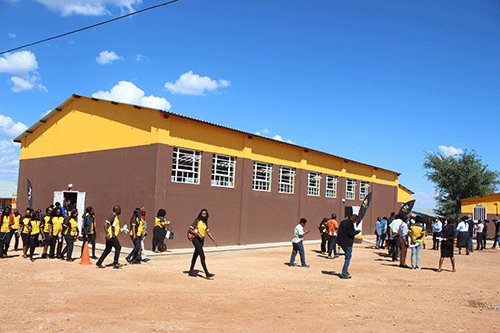GOBABIS – Swanu vice president Alpha Kangueehi has questioned the implementation of free education in public schools in Namibia.
Speaking to Nampa last week, Kangueehi raised concerns that the government promised free education, but “has not done anything to accomplish this dream”, as parents are still forced to pay ‘voluntary’ school fees.
“There is no free education, as things stand now. Parents are forced to pay for things like toilet paper; they are buying their own stationery.
Imagine, some schools are asking for nine toilet paper rolls per child, which is an awkward situation. The government is failing us with the universal free education as it is a provision in our constitution, honestly,” he stressed.
Kangueehi said the current situation will jeopardise the education system, and has led to parents not sending their children to school anymore because of financial problems.
“If one goes to the ministry now, they will be told that parents who cannot afford it can negotiate with schools and be exempted from this voluntary contribution. Parents are begging to have their children admitted because they cannot afford the so-called voluntary contribution,” he noted.
He further said hostels are expensive, and appear to cater for well-off families only.
“An impoverished parent cannot send children to school hostels, and this is affecting our schools’ performance as these children are left to study under very challenging circumstances,” he added.
Responding to Kangueehi, Ministry of Education, Arts and Culture spokesperson Esther Angula said they are acting in accordance with the Education Amendment Act No. 14 of 2017, which introduced changes to Section 25 subsection 9(a) that addressed the parental contribution to school funds.
“The Act outlines that a School Development Fund (SDF) comprises funds gathered from various sources, including voluntary contributions from individuals, donations, bequests and funds raised through approved fundraising campaigns or school-related activities endorsed by the principal and school board,” Angula stated. She noted that it is important to clarify that the contribution mentioned is intended to be a voluntary undertaking, as explicitly stated in the provisions of Act 14 of 2017.
“The Act emphasises the voluntary nature of these contributions, and underlines that they should not be enforced as compulsory payments,” she continued. Furthermore, it is worth noting that this contribution is not solely limited to parents; academic sympathisers and supporters of education also have the opportunity to participate in this voluntarily.
-Nampa


